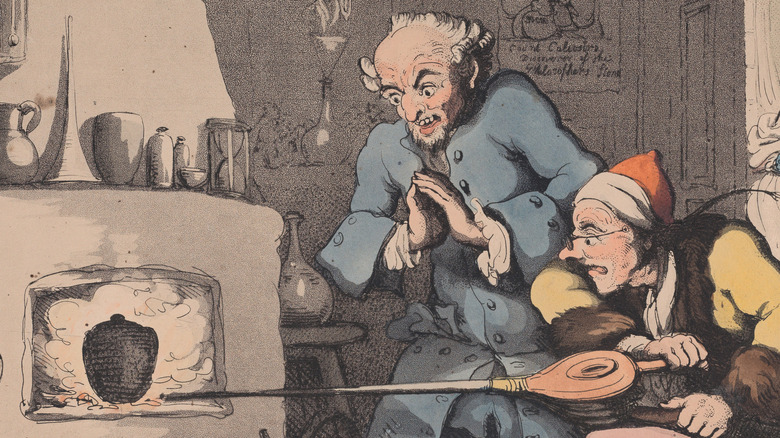The Truth About The Real Philosopher's Stone
In the first installment of J.K. Rowling's Harry Potter series, the Philosopher's Stone (or Sorcerer's Stone in American edition, as well as the U.S. version of the film) is the focal point of many characters' motivations. In the lore of the franchise, the stone was created by the wizard Nicolas Flamel and gives those who possess it both lasting life and the ability to create precious metals (via Wizarding World). While Flamel does get attention elsewhere in the series, the stone is destroyed at the conclusion of the first book/film.
As is true of many of Rowling's characters, Flamel is in fact based on a real person, a French scribe of the same name who lived between 1330 and 1418. Not a great deal is known of his life, but 200 years after his death Flamel became the subject of a new chapter in the preexisting Philosopher's Stone mythos (via Britannica). Per the assertion of later pseudo-historians (building in part off of Flamel's own writings), Flamel was an alchemist who succeeded in creating the stone, faking his death before fleeing into obscurity.
Possession of the philosopher's stone was the dream of many for centuries
The allure of both immortality and creating gold and other valuable materials out of nothing are topics that have captivated people for thousands of years. In medieval Europe, alchemy became a source of hope for many who wished to create their wealth through science. Meanwhile, in the 9th century, gunpowder was unintentionally born from the efforts of Chinese monks to create an elixir of immortality. The myth of the Philosopher's Stone came about in a similar vein, as its discovery and/or creation was pursued by both European and Arab alchemists for centuries (via Atlas Obscura).
The story is told that at some point, Flamel came into possession of an ancient Hebrew manuscript that, once decoded, provided information on how to either create the stone or how to otherwise turn lead into gold (via History). While perhaps easily dismissible today, authors such as Victor Hugo and Albert Pike saw enough credibility in the tale to keep it alive for hundreds of years, until Rowling incorporated it into her own work.

